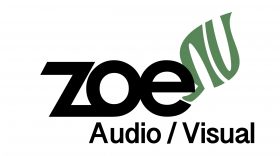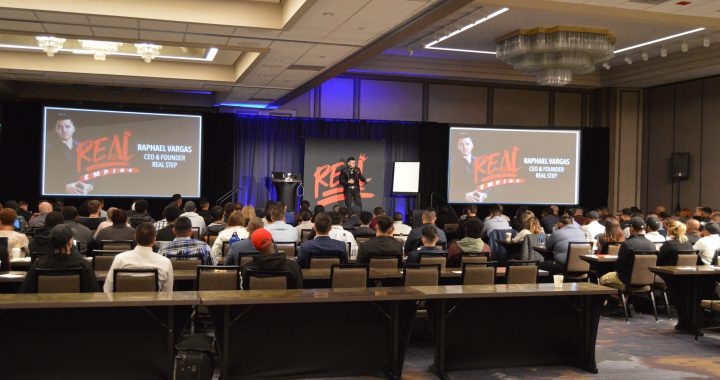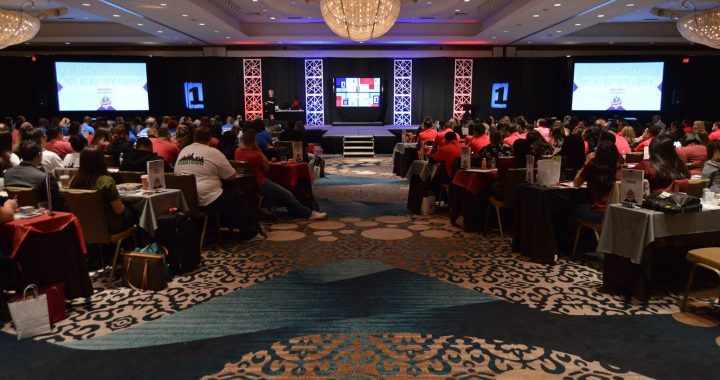1. Know your inputs and your outputs. Every soundboard and video switcher has a fixed number of inputs you can plug in mics, cameras, etc., and a fixed number of outputs you can sent the audio or visual to speakers, screens, etc. We will not attempt to explain inputs and outputs further, but it is key that planners know how many they’ll need ahead of time so the AV provider can plan to bring the appropriate mixers. If they end up having to use a larger mixer than originally quoted on your estimate, it likely will cost you more.
And be sure to count every single input and output, including to things like translation booths and webcasts. And remember that any video output that is going to be different on different screens—instead of all screens showing the exact same thing all the time—will count as more than one output.
2. Know the stage size and the room size. Wide stages end up having “dead zones” where there is uneven sound or no sound in front of the stage where the side speakers don’t reach, so you’ll need “center fill” speakers. If the room is deep, you’ll likely need “delays” to cover the back of the room with good even sound through out the room.
3. You can try to negotiate patch fees, power drops, WiFi, and rigging points up front. Patch fees—which some venues charge to patch into their in-house system, power drops for powering your AV equipment and WiFi access —may be negotiable, but only before the contract is signed. Ask the venue if it has rigging points—those points on the ceiling or an I-beam that have hooks to hang trusses and rigging from—and if so, how many, and how much they charge to use them. While the venue may not be able to negotiate rigging point usage fees if the rigging points are owned by the in-house AV company, it doesn’t hurt to ask if they can negotiate with the company on your behalf.
4. You can get around paying to have a backup projector by asking to use “running spares.” Instead of using one high-lumen (expensive) projector and paying for them to have a spare in case it goes down, ask to use two lower lumen projectors stacked on top of each other. While they do have to be aligned perfectly and the image won’t be quite as bright, if one goes down, you have a built-in backup already on hand.
5. How many AV technicians do I need to have in a room. “It depends,” but generally speaking, the more important the session is to the event, the more techs you want to have available, “It’s very common to have techs floating from breakout session room to breakout session room, hanging out in the hallways like Batman waiting for sounds of panic.”
Good resource: Here is a great glossary of live event tech terminology on his site that will help make anyone—even an event AV neophyte like me—feel more confident when talking event tech.


